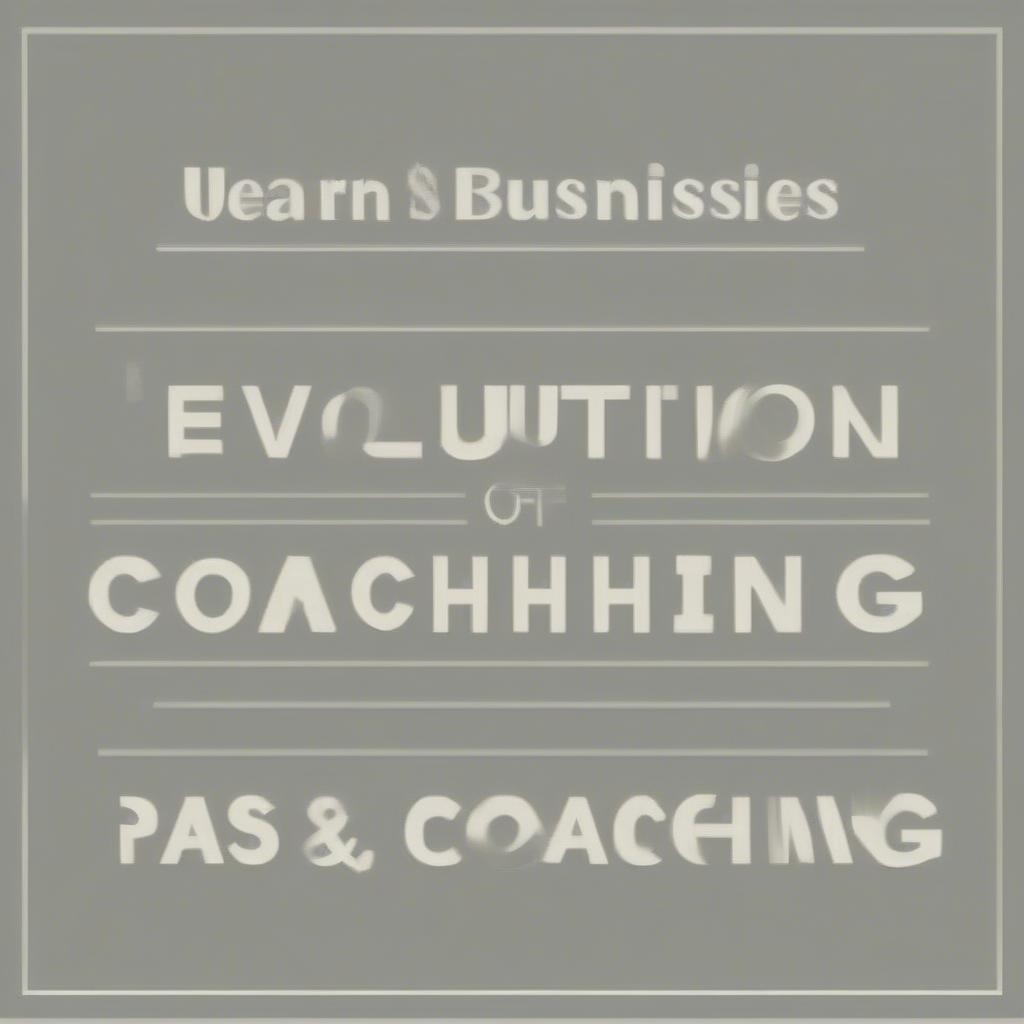
The Spark: Why Choose a Life Coaching Business?
So, you’re feeling the pull towards a life coaching business, a career where you empower others to unlock their potential and live more fulfilling lives? It’s not just a trend; it’s a deeply rewarding path for those with a passion for personal growth and a genuine desire to help. But why choose this over other ventures?
The Allure of Making a Difference
Unlike many businesses focused solely on profits, a life coaching business is inherently about impact. You’re not just selling a service; you’re facilitating transformation. Think about the satisfaction of witnessing someone achieve a long-held dream, overcome a significant hurdle, or finally find their purpose – all thanks to your guidance. That’s a kind of reward that goes beyond any financial gain.
Flexibility and Autonomy: Your Schedule, Your Rules
The world of life coaching offers a level of flexibility that’s hard to match. You decide when you work, where you work (online or in-person), and who you work with. This autonomy is a powerful draw for many who are tired of rigid schedules and corporate constraints. You’re the captain of your ship, charting your own course to coaching success.
Low Startup Costs: Accessibility for All
Compared to many other businesses, launching a life coaching business requires relatively low startup costs. You don’t need a physical storefront, extensive inventory, or heavy machinery. Your primary investment is your time, skills, and a commitment to learning and growth. This makes it a highly accessible option for aspiring entrepreneurs.
High Demand: People are Seeking Support
In our increasingly complex and fast-paced world, the demand for life coaches is steadily rising. People are actively seeking guidance and support to navigate life’s challenges, discover their strengths, and achieve their goals. This high demand creates a fertile ground for your coaching business to thrive.
Laying the Foundation: Essential Steps to Launch Your Coaching Business
Now that you’re inspired, let’s get practical. Starting a life coaching business isn’t just about having good intentions; it requires strategic planning and execution. Here’s a step-by-step startup guide:
1. Defining Your Niche: Who Will You Serve?
Trying to be everything to everyone is a recipe for overwhelm and ultimately, for failure. Choosing a specific niche allows you to focus your efforts, target your marketing, and become an expert in a particular area. Consider:
- Your Passion: What areas of life are you most passionate about? Relationships? Career? Health? Spirituality?
- Your Expertise: What life experiences or skills do you possess that give you unique insights?
- Market Needs: Is there a demand for coaching in the area you’re passionate about? Research potential client needs.
Examples of Niches:
- Career Coaching (e.g., Job Transition, Leadership Development)
- Relationship Coaching (e.g., Dating, Communication, Conflict Resolution)
- Health & Wellness Coaching (e.g., Weight Loss, Stress Management, Holistic Well-being)
- Personal Development Coaching (e.g., Goal Setting, Confidence Building, Productivity)
- Spiritual Coaching (e.g., Purpose Discovery, Mindfulness, Meditation)
Choosing a niche doesn’t mean you can’t help others outside of it. It simply allows you to hone your skills and tailor your services for maximum impact.
2. Getting Trained and Certified: Building Credibility
While anyone can call themselves a life coach, investing in proper training and certification adds credibility, enhances your skills, and demonstrates your commitment to ethical practice.
- Research Reputable Programs: Look for programs accredited by recognized bodies like the International Coaching Federation (ICF) or the Certified Coaches Federation (CCF).
- Consider Your Learning Style: Do you prefer in-person training, online courses, or a hybrid approach?
- Focus on Core Competencies: Choose programs that focus on essential coaching skills like active listening, powerful questioning, and effective communication.
- Think About Specializations: If your niche requires specific expertise, look for programs that offer specialized training.
- Certification Matters: Achieving certification demonstrates your proficiency and helps you stand out in a crowded marketplace.
3. Legal and Business Setup: Getting Your House in Order
Setting up your business legally is crucial for long-term success and peace of mind.
- Choose a Business Name: Select a name that’s catchy, memorable, and reflects your brand.
- Register Your Business: Determine your business structure (sole proprietorship, LLC, etc.) and register with the appropriate authorities.
- Get the Necessary Licenses and Permits: Research local and state requirements for operating a coaching business.
- Open a Business Bank Account: Keep your personal and business finances separate.
- Consider Insurance: Professional liability insurance can protect you from potential lawsuits.
- Draft Client Agreements: Create clear contracts that outline your services, fees, policies, and expectations.
4. Crafting Your Brand: Telling Your Story
Your brand is more than just a logo or a color scheme; it’s the essence of your coaching business. It’s how people perceive you and your services.
- Define Your Brand Identity: What are your core values? What makes your coaching unique?
- Develop Your Visual Branding: Create a professional logo, choose colors and fonts that reflect your brand’s personality, and maintain a consistent look.
- Craft Your Brand Message: What problems do you solve? What are the benefits of working with you?
- Tell Your Story: Share your journey and why you’re passionate about life coaching.
5. Pricing Your Services: Finding the Sweet Spot
Determining your fees is a balancing act between reflecting your value and ensuring accessibility for your target audience.
- Research the Market: What do other coaches in your niche charge?
- Consider Your Experience and Expertise: Charge higher rates as you gain more experience and establish yourself as an expert.
- Factor in Your Costs: Consider your time, training, marketing, and operating expenses.
- Offer Different Packages: Provide options that cater to different needs and budgets.
- Be Clear About Pricing: Clearly communicate your fees upfront to avoid misunderstandings.
Pricing Strategies:
- Hourly Rates: Charge a set fee for each coaching session.
- Package Deals: Offer discounted rates for multiple sessions.
- Subscription Model: Charge a recurring fee for ongoing coaching support.
- Value-Based Pricing: Charge based on the results and transformation your clients achieve.
6. Marketing Your Business: Getting Your Name Out There
No matter how skilled you are as a coach, you need to attract clients to build a successful coaching business.
- Build a Website: Create a professional website that showcases your brand, services, and testimonials.
- Optimize for Search Engines (SEO): Use relevant keywords, create high-quality content, and build backlinks to improve your website’s visibility. (e.g., life coaching business, coaching success, startup guide)
- Utilize Social Media: Choose platforms where your target audience hangs out and share valuable content, engage with your followers, and run targeted ads.
- Network Strategically: Attend industry events, join relevant groups, and connect with other professionals.
- Offer Free Consultations: Provide potential clients with a taste of your coaching style and build rapport.
- Seek Referrals: Encourage satisfied clients to refer you to their friends and family.
- Create Content Marketing: Write blog posts, create videos, and record podcasts that showcase your expertise and provide value to your audience.
- Guest Blogging/Podcasting: Collaborate with other businesses and influencers in your niche to expand your reach.
The Art of Coaching: Skills That Drive Success
Beyond the logistics of starting a business, the core of your success lies in your coaching skills. These skills are essential for guiding clients towards meaningful change.
Active Listening: Hearing What’s Not Said
True listening goes beyond hearing words; it’s about understanding the emotions, needs, and unspoken messages behind the words. Practice:
- Paying Attention: Focus on your client without distractions.
- Empathy: Understand their perspective and feelings.
- Non-Judgment: Create a safe space where they feel comfortable sharing.
- Summarizing and Reflecting: Ensure you understand their message correctly.
- Asking Clarifying Questions: Deepen your understanding and invite further sharing.
Powerful Questioning: Unlocking Inner Wisdom
The right questions can unlock powerful insights and empower clients to find their own answers.
- Open-Ended Questions: Avoid questions that can be answered with a simple “yes” or “no.”
- Focus on Solutions: Help clients move beyond problems and towards solutions.
- Challenge Limiting Beliefs: Gently question negative patterns of thinking.
- Encourage Self-Reflection: Help clients gain a deeper understanding of themselves.
- Use the ‘Power of Silence’: Allow moments of quiet contemplation so clients can connect with themselves.
Goal Setting and Action Planning: Turning Vision Into Reality
Coaching isn’t just about brainstorming; it’s about helping clients translate their visions into actionable plans.
- Clarify Vision: Help clients define their goals clearly and concretely.
- Break Down Goals: Divide large goals into smaller, manageable steps.
- Create a Timeline: Establish a realistic timeline for achieving each step.
- Identify Resources: Help clients identify the resources they need.
- Monitor Progress: Regularly check in with clients and help them stay accountable.
Accountability and Motivation: Keeping Clients on Track
Motivation can wane, and old habits can resurface. Your role as a coach is to provide support, encouragement, and accountability.
- Regular Check-ins: Schedule regular sessions to monitor progress and provide ongoing support.
- Celebrate Successes: Acknowledge and celebrate milestones, big and small.
- Address Setbacks: Help clients learn from setbacks and get back on track.
- Provide Encouragement: Remind them of their potential and their “why.”
- Develop Accountability Systems: Implement strategies that keep clients committed to their goals.
Ethics and Professionalism: Building Trust
As a life coach, you’re in a position of trust. Maintaining high ethical standards is crucial for your reputation and the well-being of your clients.
- Confidentiality: Protect your clients’ privacy and information.
- Integrity: Act honestly and ethically in all interactions.
- Professional Boundaries: Maintain clear boundaries between your role as a coach and other relationships.
- Continuing Education: Stay updated on the latest coaching practices and trends.
- Seek Supervision: If necessary, seek guidance from experienced coaches to address ethical dilemmas.
Scaling Your Business: Expanding Your Reach and Impact
Once you’ve established a solid foundation, it’s time to think about scaling your coaching business. This involves expanding your reach, diversifying your offerings, and ultimately impacting even more lives.
Group Coaching Programs: Expanding Your Reach
Group coaching allows you to work with multiple clients at once, creating a community and generating more revenue per hour.
- Design Structured Programs: Offer programs with a clear curriculum and learning objectives.
- Create a Supportive Environment: Foster a sense of community and encourage peer-to-peer support.
- Use Technology: Utilize video conferencing and online platforms to manage group sessions.
- Charge Premium Rates: Group coaching is often priced higher than individual coaching.
Online Courses and Digital Products: Creating Passive Income
Developing online courses, workbooks, and other digital products allows you to generate income even when you’re not coaching one-on-one.
- Identify Your Audience’s Needs: What are the common challenges your clients face?
- Create High-Quality Content: Ensure your courses are well-structured, informative, and engaging.
- Utilize Online Platforms: Choose platforms that are easy to use and provide the necessary features.
- Promote Your Products: Market your products through your website, social media, and email marketing.
Affiliate Marketing: Leveraging Other People’s Products
Promote products or services that align with your brand and that your clients will find beneficial.
- Choose Reputable Partners: Only promote products or services that you believe in.
- Be Transparent: Clearly disclose your affiliate relationships to your audience.
- Focus on Value: Promote products that will genuinely help your clients.
- Earn Commission: Receive a commission for each sale generated through your affiliate link.
Speaking Engagements and Workshops: Sharing Your Expertise
Speaking at events and workshops can position you as an expert and attract new clients.
- Develop Compelling Presentations: Create talks that are informative, engaging, and inspiring.
- Network with Event Organizers: Build relationships and seek out opportunities to speak at conferences and workshops.
- Promote Your Services: Clearly state the benefits of working with you.
- Follow-up With Attendees: Nurture leads and offer personalized support.
Building a Team: Delegating and Growing
As your business grows, consider delegating tasks to virtual assistants or other professionals.
- Identify Your Needs: What tasks do you need help with?
- Hire Qualified Professionals: Ensure they have the skills and experience to support your business.
- Establish Clear Expectations: Communicate your requirements and deadlines effectively.
- Focus on Growth: By delegating, you can focus on high-level activities and expanding your reach.
Learn Business: Your Partner in Coaching Success
As you embark on your journey to build a thriving life coaching business, remember that support is available. Learn Business is a valuable resource that offers guidance and templates tailored specifically for businesses just like yours. We understand the challenges of launching and scaling a coaching practice, and we’re committed to helping you succeed.
How Learn Business Supports Your Coaching Venture:
- Business Plan Templates: Craft a comprehensive business plan to guide your startup strategy.
- Financial Forecasting Tools: Project your revenue, expenses, and profitability with accuracy.
- Marketing Strategy Guides: Develop effective marketing plans to attract your ideal clients.
- Client Onboarding Templates: Create a seamless client experience from initial contact to ongoing coaching sessions.
- Legal Agreement Templates: Access legally sound agreements that protect your business and your clients.
- And so much more: We offer a range of resources designed to streamline your business operations and empower your growth.
By leveraging the support of Learn Business, you can avoid common pitfalls, save time and resources, and increase your chances of coaching success.
Conclusion: Your Journey to Coaching Success Starts Now
Starting a life coaching business is a journey of passion, dedication, and continuous learning. It’s a path where you can transform lives, create a meaningful impact, and build a fulfilling career. By following these steps, embracing the art of coaching, and continuously striving to improve, you’re well on your way to creating a thriving business that embodies your values and empowers others to achieve their full potential. Remember, your startup guide is a roadmap, and your coaching success depends on your commitment, adaptability, and unwavering belief in your ability to make a difference. So, take the leap, embrace the challenge, and start your incredible journey as a life coach today!



Leave a Reply